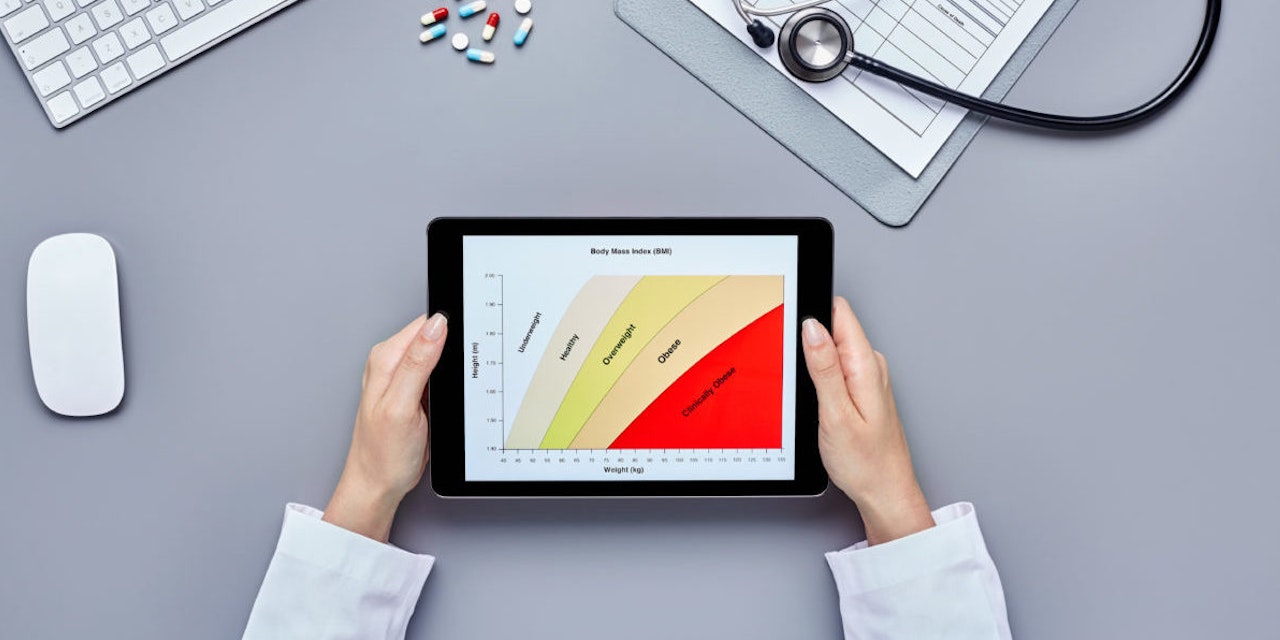Bmi Calculator: What Does It Really Tell Us?
A BMI calculator is often used to determine if your weight is good for your height. But there's more to it than that. Read on to learn more.
- Published: 8/8/2018
- Categories: Health
- 3 min. read

- Published: 8/8/2018
- Categories: Health
- 3 min. read
We’ve all heard the phrase “BMI calculator,” but what does it tell us about our health? It’s becoming a familiar tool to discover if you’re at a good weight for your height. Understanding what BMI measures and how to use this information will go a long way to help you take the next steps to improve your health. Explore these tidbits about a BMI calculator and what it really does tell us.
What Is BMI?
Let’s start with the facts: What is BMI, and what can it tell us about our overall health and wellness? Body Mass Index is a means to measure and study changes in your body weight. Here’s where we get into the math: To calculate your BMI, you divide your weight in kilograms by height in meters squared. Don’t worry. If math is not your strong point, a BMI calculator by Lifesum will do all the calculations for you.
A healthy body mass index range is generally between 18 and 25, while a result over 30 is thought to be overweight, and a BMI over 40 often means that a person is obese. Obesity puts us in real danger, increasing our risk of developing diabetes, high blood pressure, and heart disease. It can help your doctor learn about your overall fitness and is a handy tool for assessing your risk of developing chronic diseases.
BMI Alone Is Misleading
Basing your sense of health and fitness solely on your BMI alone can be misleading. This type of measurement is limited because it does not take into consideration a person’s body fat or muscle mass. An athlete with heavy muscle mass may have the same body mass index as someone who is overweight. As a general guideline, use a BMI calculator app to help evaluate your weight-related health risks and to develop a weight-loss strategy if needed.
Where you carry your weight on your body also matters. If you tend to carry it in your midsection, around your waist, bottom, and thighs, you may have a higher risk of developing diabetes and other diseases, compared to those folks who store their excess weight in their arms and legs.
Where to Go From Here
As we delve into a high or low BMI estimate, where do we go from here? Assuming you are not a professional bodybuilder, you can usually use your BMI calculator to motivate you to lose weight. We all know losing weight isn’t the easiest thing to do. Make small, sustainable changes to your eating habits, like creating a 250 to 500 calorie deficit and get the recommended 30 minutes of physical activity every day. The best weight loss app allows you to track both calories and activities. Why not give Lifesum a try?
Regardless of what your BMI calculator says about you, your overall goal is to have a nutrition and exercise program that will support your goals and maintain a healthy lifestyle. Remember that losing weight and keeping it off is in your hands. Make informed choices about what you put on your plate and how much exercise you engage in, and build healthy habits for life.
All of the content and media on Lifesum is created and published for information purposes only. It is not intended to be used as a substitute for medical advice or treatment. Users should always consult with a doctor or other health care professional for medical advice. If you have or think you are at risk of developing an eating disorder, do not use the Lifesum app and seek immediate medical help.